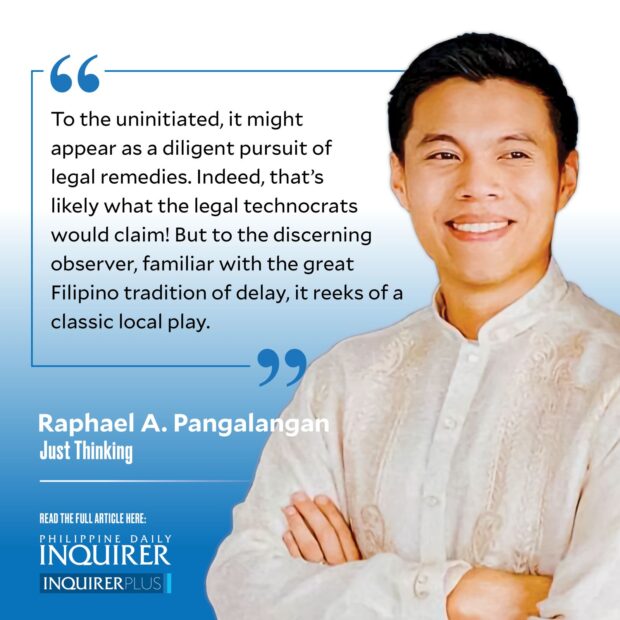Bail, not jail
Bail is a paradox. The presumption of innocence may be the cornerstone, yet in the context of bail, the heavier the penalty, the lighter the presumption. Section 13 of the Bill of Rights reads: “All persons, except those charged with offenses punishable by reclusion perpetua when evidence of guilt is strong, shall, before conviction, be bailable[.]”
The lex lata is thus clear: Bail is a matter of right when the offense charged is punishable sub-perpetua, but a matter of discretion if the offense charged is punishable by death, reclusion perpetua or life imprisonment and the evidence of guilt is strong.
Article continues after this advertisementBut in the case of Leila de Lima, therein too lies hope. With the recent retraction of the only testimony offered by the Department of Justice (DOJ) that links her to the offense charged, the prosecution’s case looks just about as sturdy as a house of cards.
In her quest for freedom, De Lima’s counsel filed a supplemental omnibus motion urging her release. A motion the resolution of which, to little surprise, the DOJ has managed to delay, from May 8 to June 5.
Alas, delay is the name of the game. The bread and butter of Filipino lawyers. The secret sauce in our legal adobo. We wear it as a badge of honor, a testament to our cunning legal acumen. Indeed, it has spawned its own vocabulary brimming with euphemisms like “parking fees” — the not-so-subtle bribes to “park” cases in the hope of dismissal due to inordinate delay. And of course, there’s “dribbling” — an analogy aptly created by this basketball-crazed country where lawyers simply run down the clock instead of scoring points.
Article continues after this advertisementHowever, what we embrace as cunning strategy, foreign courts view with horror. In the case of Canada v. Pacificador, our legal procedures were so shockingly prolonged that they were found by the Canadian Court to have violated the Canadian Charter of Rights and Freedoms. Ouch!
This penchant for procrastination isn’t confined to our shores. It’s a contagion that has infected our international legal affairs too, most recently before the International Criminal Court (ICC). Our government’s game of legal ping-pong with the ICC, filled with deferral requests, notices of appeal, and prayers for suspensive effect, mirrors the local tactics that have left former senator De Lima languishing behind bars for six years without conviction.
When the Pre-Trial Chamber (PTC) authorized the Office of the Prosecutor (OTP) to investigate the Situation in the Philippines, the government filed a deferral request by Nov. 10—the very last day for filing. When the PTC authorized resumption of the investigation in 2023, the Philippine government was quick to file a notice of appeal with a prayer for suspensive effect of the PTC ruling. This was later followed by another submission praying for an extension of time to file an appeal brief. With the appeal brief finally filed, the OTP filed a response to which, you guessed it, the Philippine government yet again sought leave from the court to reply to!
To the uninitiated, it might appear as a diligent pursuit of legal remedies. Indeed, that’s likely what the legal technocrats would claim! But to the discerning observer, familiar with the great Filipino tradition of delay, it reeks of a classic local play.
When the government’s filings before the ICC are analyzed in light of our domestic legal landscape, we will recognize a dilatory pattern. The very same pattern that, for De Lima, has resulted in six years and counting without liberty. And for the victims of the war on drugs, six years and more without accountability. That is six years too many.
The 1987 Constitution is clear: “No person shall be held to answer for a criminal offense without due process of law.” Punishment should hinge on the prerequisite of conviction, yet in De Lima’s case, procedure and punishment are one and the same. The process is the penalty.
The time has come to heed the call for De Lima’s release. “Bail, not jail!” is our rallying cry. A clarion call for justice, for the respect for constitutional rights, and the pursuit of a fairer legal system. For Leila de Lima. For all.
















